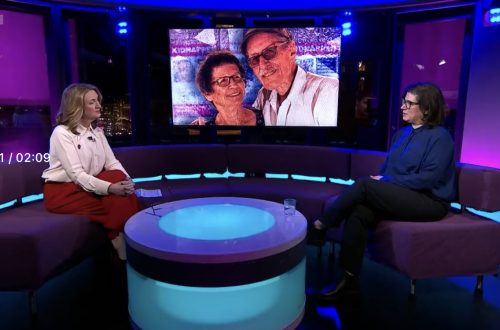Saturday’s Washington Post reports— a little too credulously– on North Korea’s tightly-controlled effort to mount a “charm offensive” aimed at the outside world.
(The mere thought of North Korean leaders trying to be charming is downright chilling. A brief look at their charming website is enough to tell you why.)
As part of the effort, the North Korean government allowed a British film crew into the country to make a documentary about two North Korean gymnasts “whose purpose in life is to glorify their country’s leader, Kim Jong Il.”
According to The Post’s reporter:
The movie indeed offers a rare glimpse into an opaque world, letting North Koreans have their say while illustrating the hardships of their lives in a manner almost never permitted by the Pyongyang government.
Huh? Does the reporter believe anyone who appeared in the film felt free enough to “have their say” about anything?
[Director Daniel] Gordon said that the North Koreans feel misunderstood and that their permission to make the film was, in part, a way for them to show their “human side, to get beyond the goose-stepping soldiers.” They “never tried to control or censor” the film crew during the six-month shoot in 2003, he said, although there were ground rules. Ubiquitous portraits of Kim Jong Il and his father, national founder Kim Il Sung, for example, could not be shown partly obscured. “But those would have been the same ground rules if we were shooting in the Vatican,” Gordon said, suggesting that deep respect would have to be shown there as well.
North Korea, the Vatican… it’s all the same. And if the authorities never tried to “control or censor” the filmmakers, I suspect it was because the filmmakers did a pretty good job of controlling and censoring themselves. Did they ask for access to North Korea’s horrific prison camps?
I didn’t think so.
The film documents North Koreans’ extraordinary devotion to Kim, who is viewed in the country as a semi-religious figure. He is kept at the center of national life through everything from propaganda cartoons for children to state radio broadcasts in every home. The film shows how the volume on radios in North Korea homes can be lowered but not turned off.
That North Korea’s rulers don’t have a problem with this 1984-brought-to-life detail reveals how utterly cut off from human decency they are.
The film does not let Kim Jong Il off lightly. After countless days of hard training by the two girls for the Mass Games — a North Korean spectacle of gymnastics and theatrics to honor Kim — the film shows that Kim did not even turn up to watch the performance.
Perhaps for this reason, the film was screened for the Communist Party elite in Pyongyang, but Gordon is still trying to win approval from North Korean officials to broadcast it on the nation’s single network, which is run by the government.
If this is the worst thing the film depicts about Kim Jong Il, I would say he got off damn lightly.


